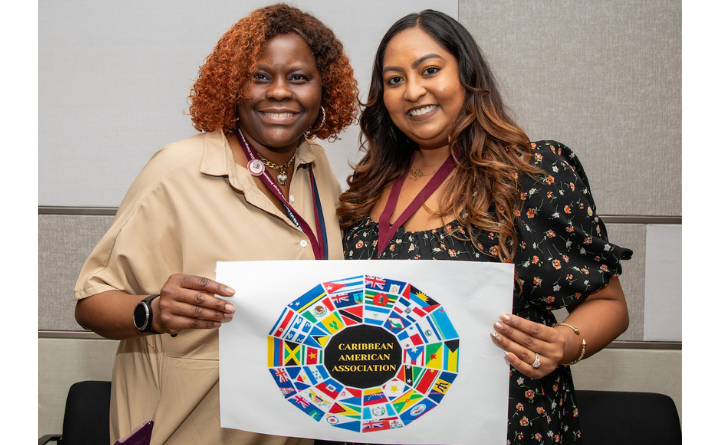Meet the Leaders of NYCHA’s New Caribbean-American Association
June is Caribbean-American Heritage Month in the U.S., which celebrates the culture, heritage, and contributions of people of Caribbean descent living in America. This month, a new employee group, the Caribbean-American Association, launched and is open to all employees, including Caribbean Americans and those who have an appreciation for the countries and their cultural diversity.
The Caribbean is comprised of many countries, including Antiqua and Barbuda, Bahamas, Barbados, Cuba, Dominica, Dominican Republic, Grenada, Haiti, Puerto Rico, Guyana, Saint Kitts and Nevis, Jamaica, Saint Lucia, Saint Vincent and the Grenadines, Trinidad and Tobago, and more. In New York City, four Caribbean countries are in the top 10 for migration to the city: the Dominican Republic, Jamaica, Guyana, and Haiti.
Sharon Dhanraj is the founder and president of the association. She has worked at NYCHA for 13 years and is Special Projects Manager for the Chief Administrative Officer. Paula Flynn, the vice president of the association, has worked at NYCHA for almost 30 years and is the Administrative Manager for the Performance Tracking Analytics Department. We spoke with them about their Caribbean heritage and upcoming plans for the association.
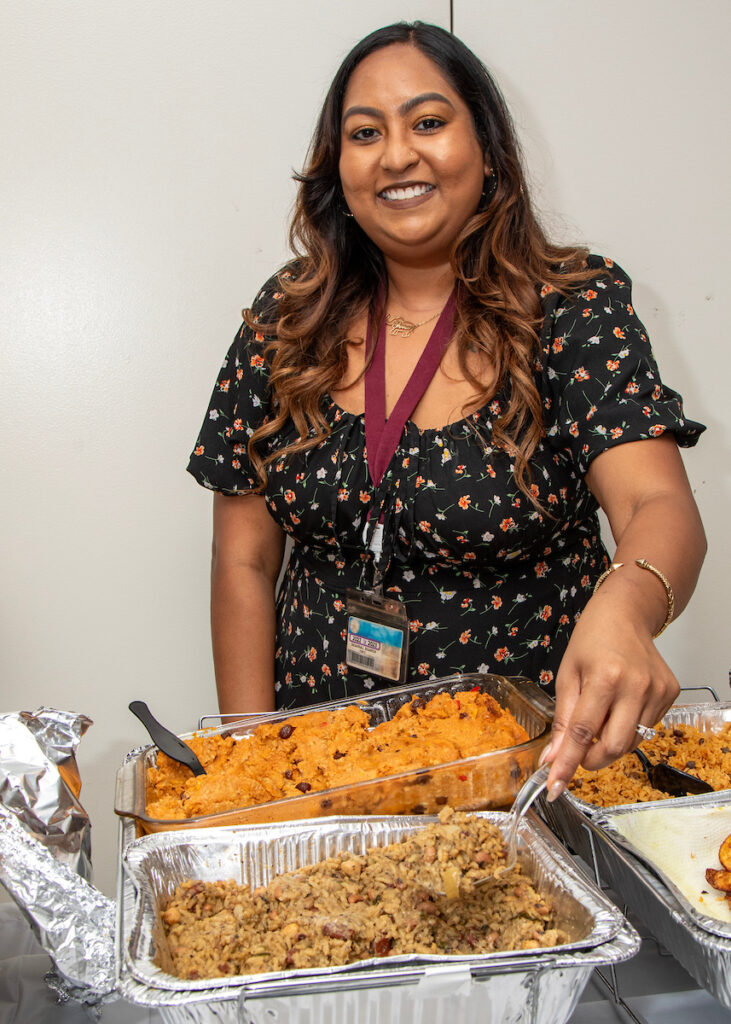
Why did you start the Caribbean-American Association?
Sharon: I became a NYCHA Change Ambassador and encouraged Paula to also become an ambassador. We attended a Change Ambassador meeting and there was talk of reviving employee associations. I feel like NYCHA has a very large Caribbean population and I noticed there wasn’t an association representing us. Paula said, “You need to start it!” So I did.
What kinds of events and activities do you plan to host?
Sharon: We want to start with virtual monthly meetings. We want to bring knowledge and education to members on different topics including employment advancement, civil service, financial literacy, mental health, and a big topic in the community: immigration. We also want to do social meetings, networking, and find members who want to do community work and give back in our communities. Another big goal is to participate in the West Indian Day Parade as a group.
Paula: I’d love to have a rep-your-flag event. There’s a lot of people who may be part of the culture who can rep two flags; for instance, I can rep St. Croix and Bermuda. It could possibly be a fundraiser for different countries in need or scholarships.
Sharon: We also want the members to lead. What do they want to talk about? What do they want to learn? What kind of events do they want to see?
The Caribbean-American Association held its first event on June 23, a potluck featuring dishes from various Caribbean countries and a trivia contest. The event was also organized by the Office of Diversity, Equity, and Inclusion; Employee Engagement; the Haitian-American Association; OHLA; and NYCHA’s NAACP Chapter.
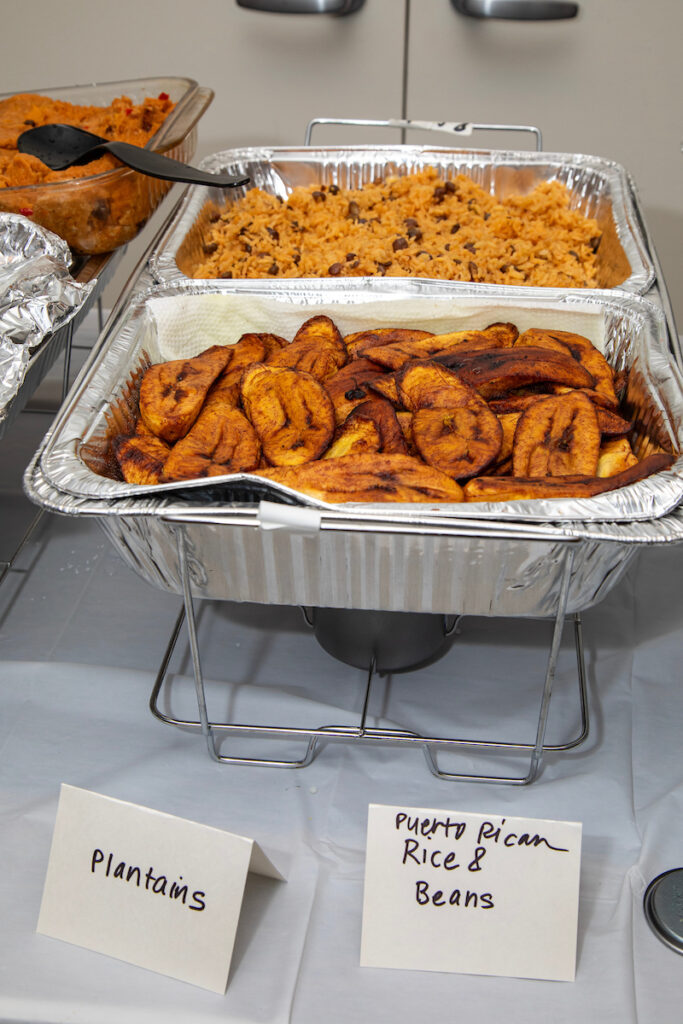
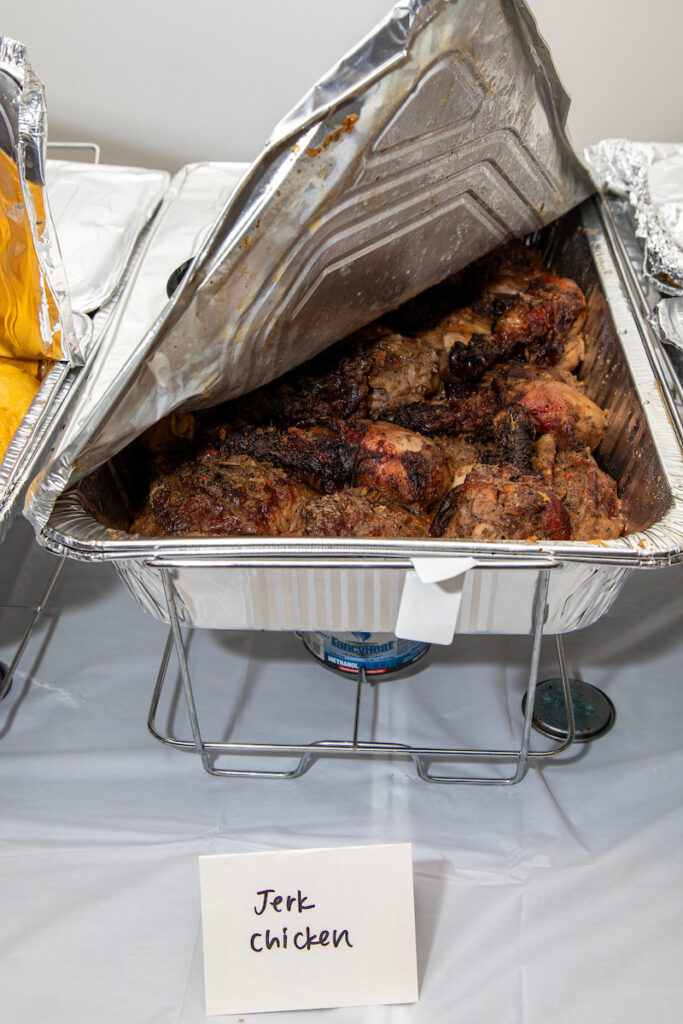
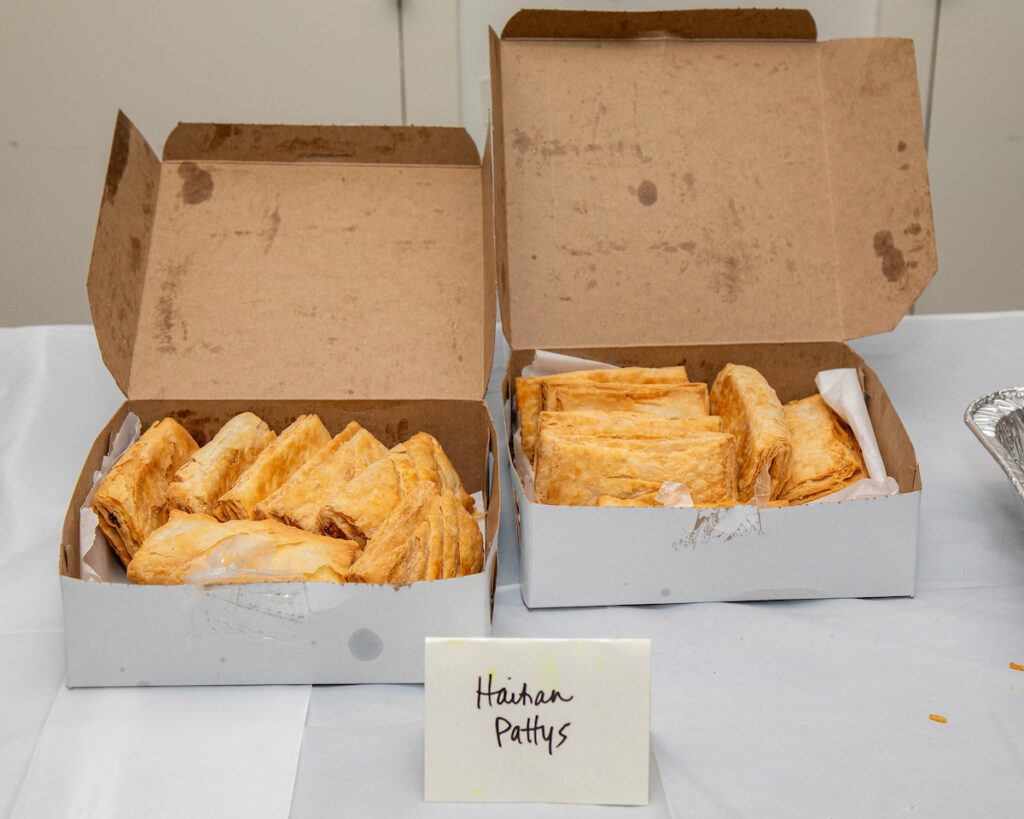
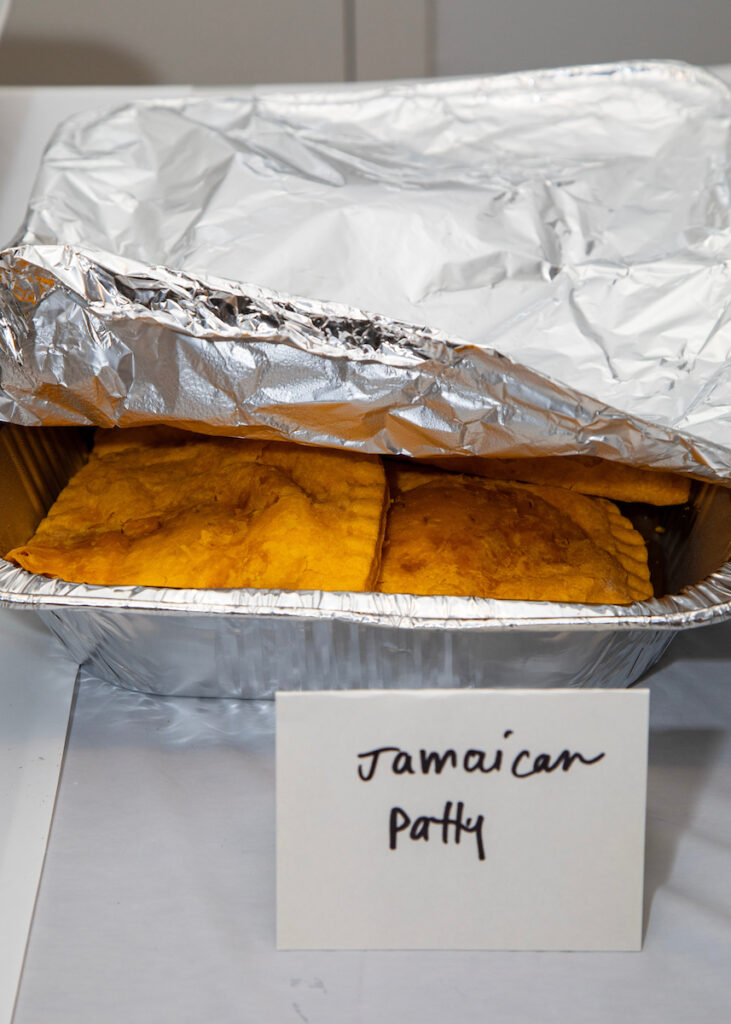
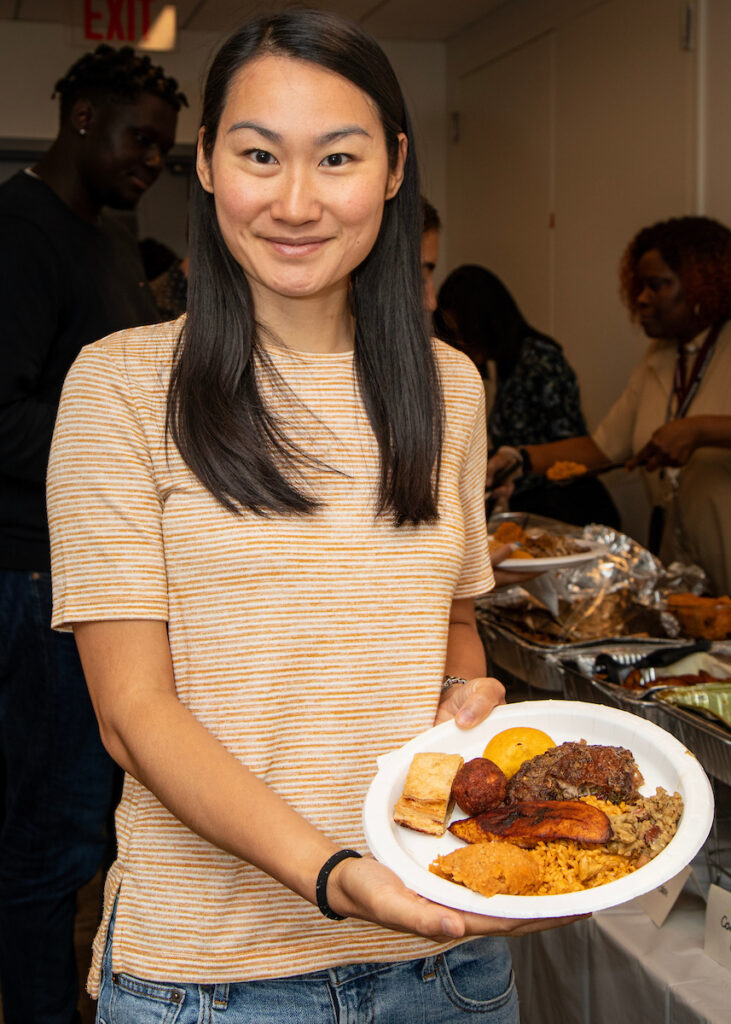
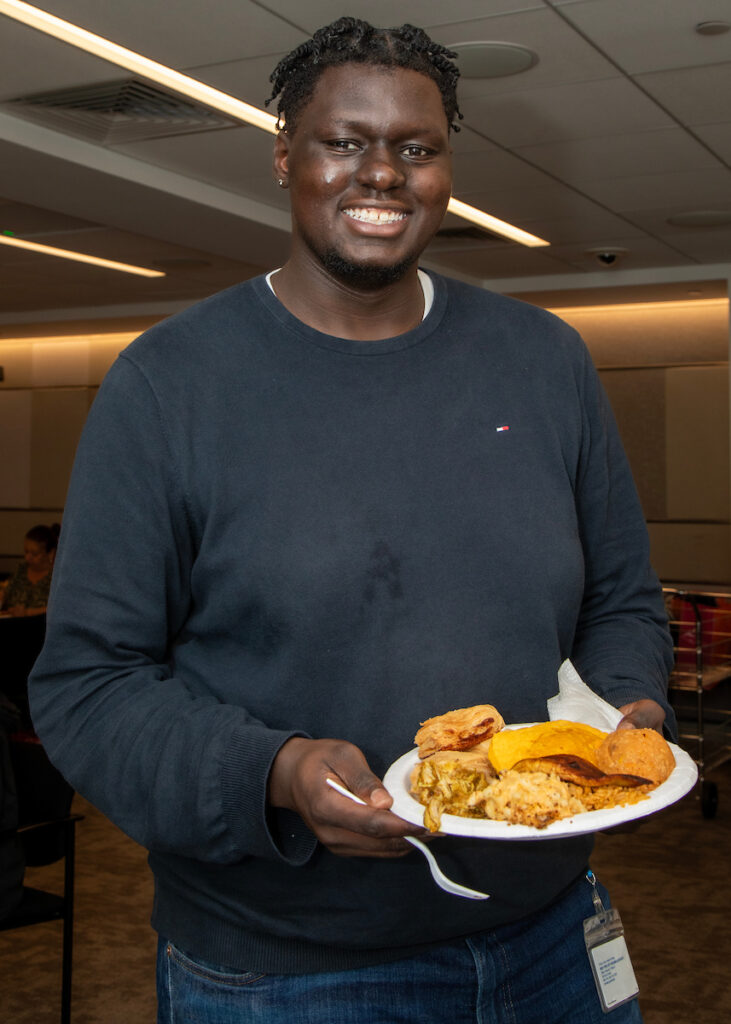
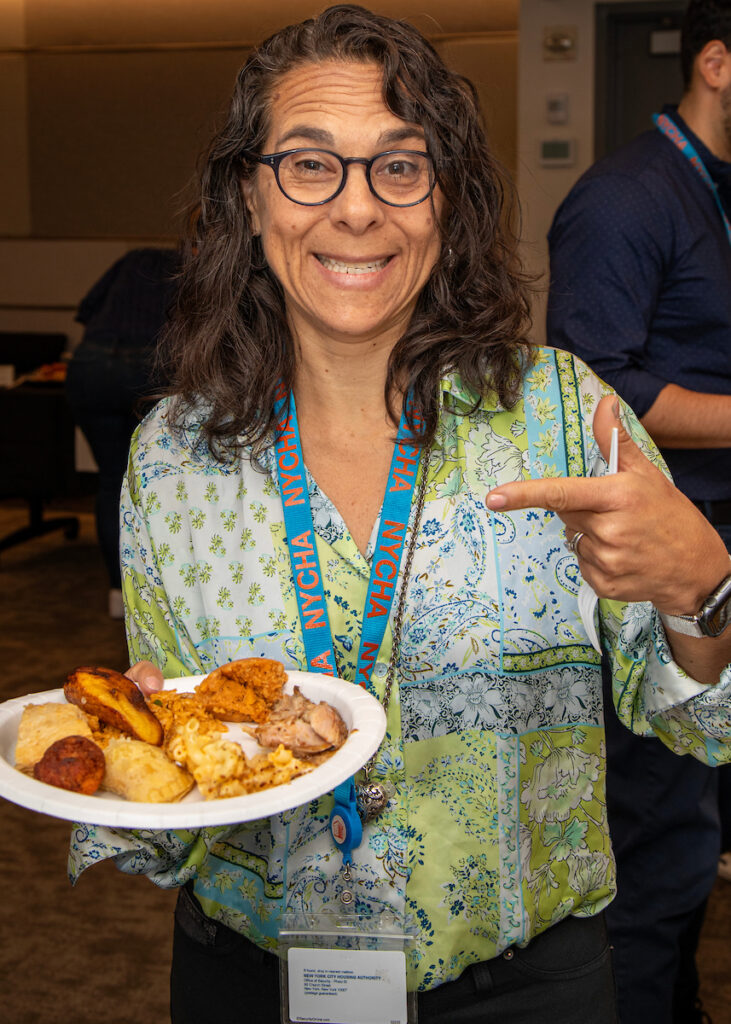
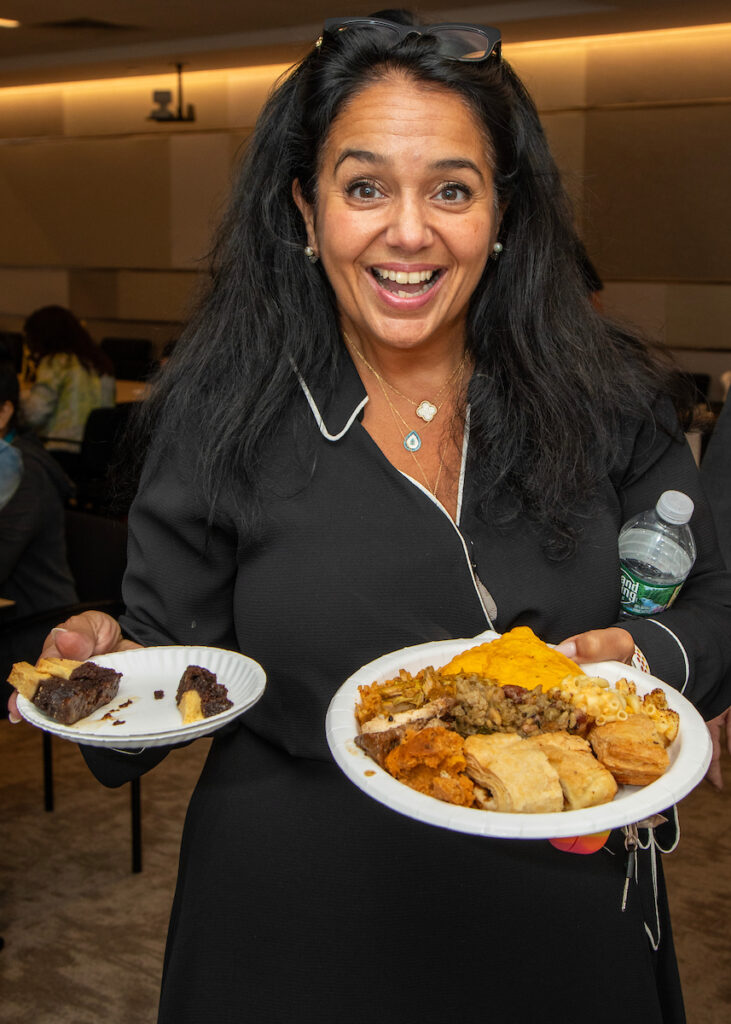
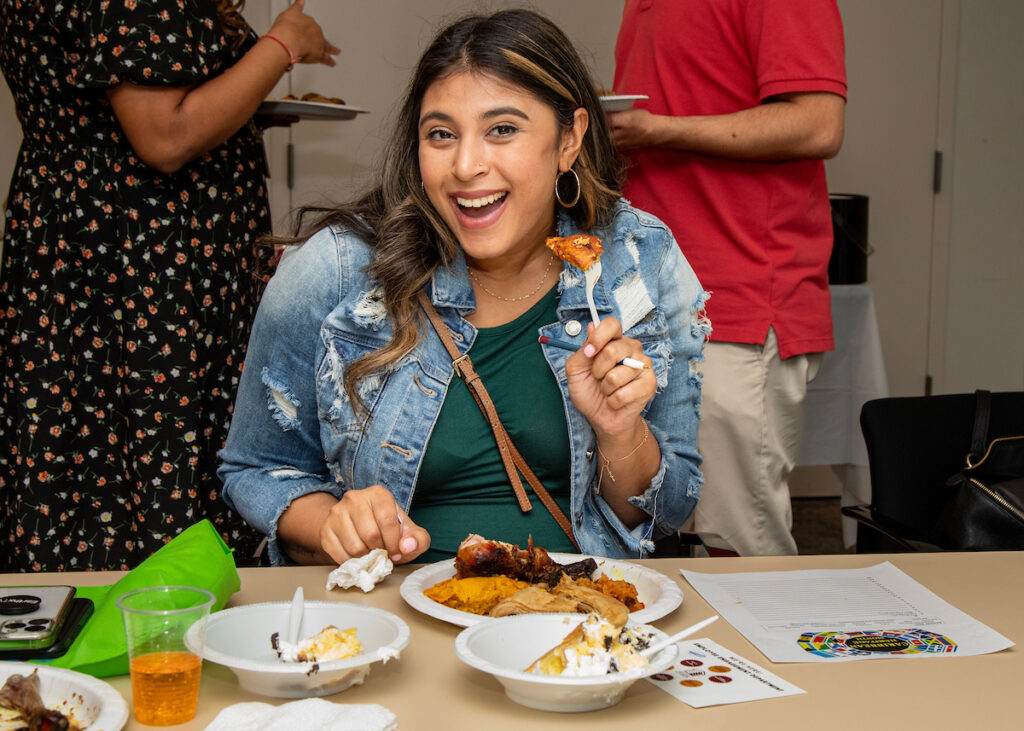
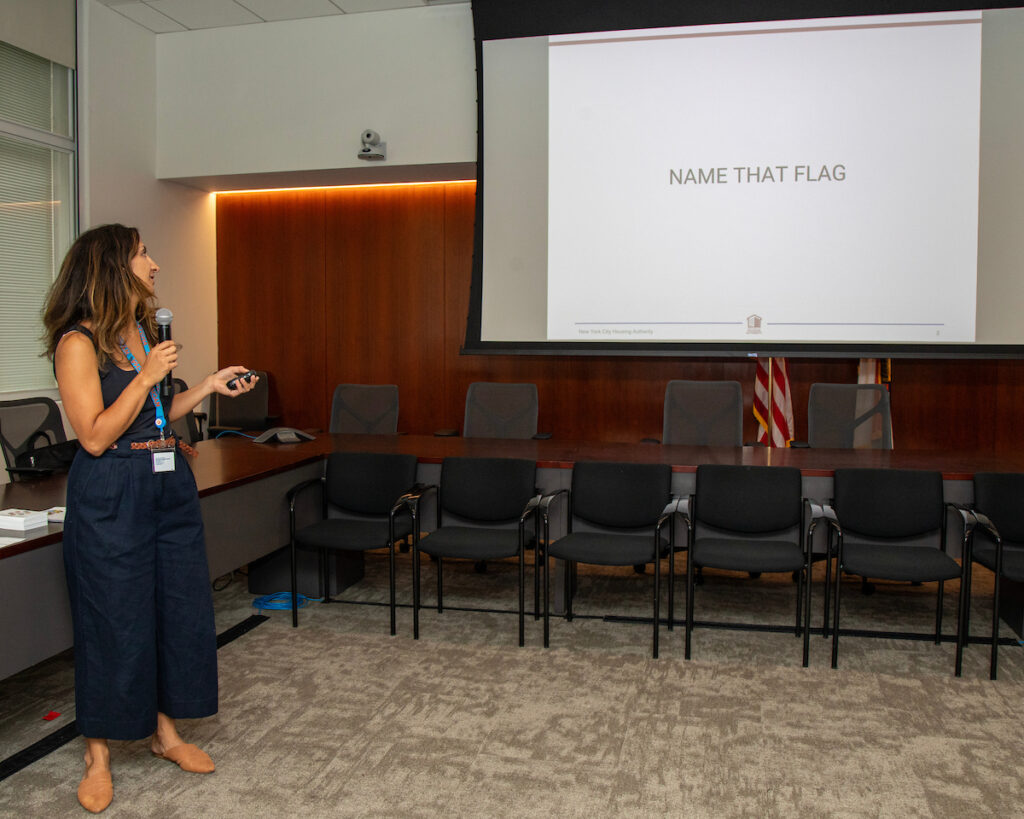
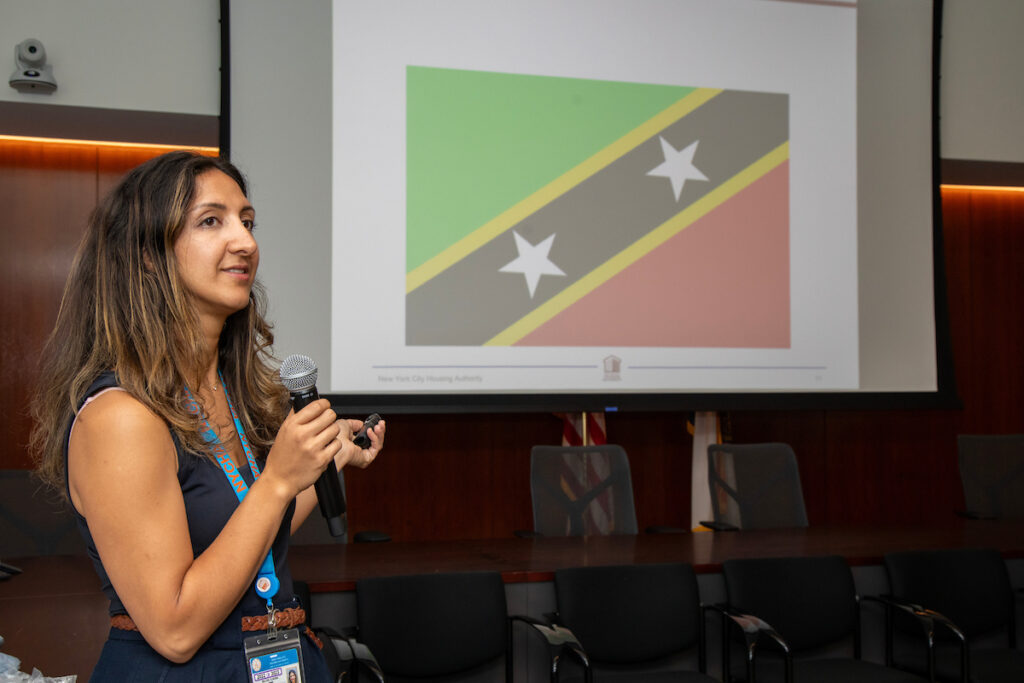
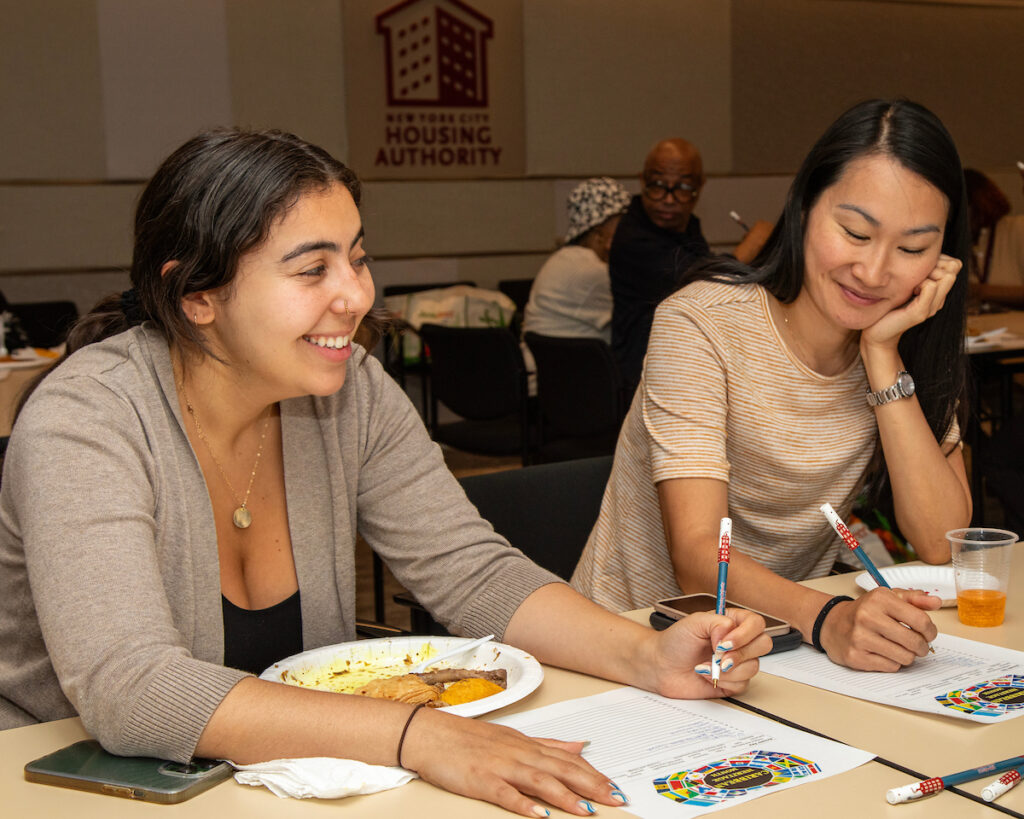
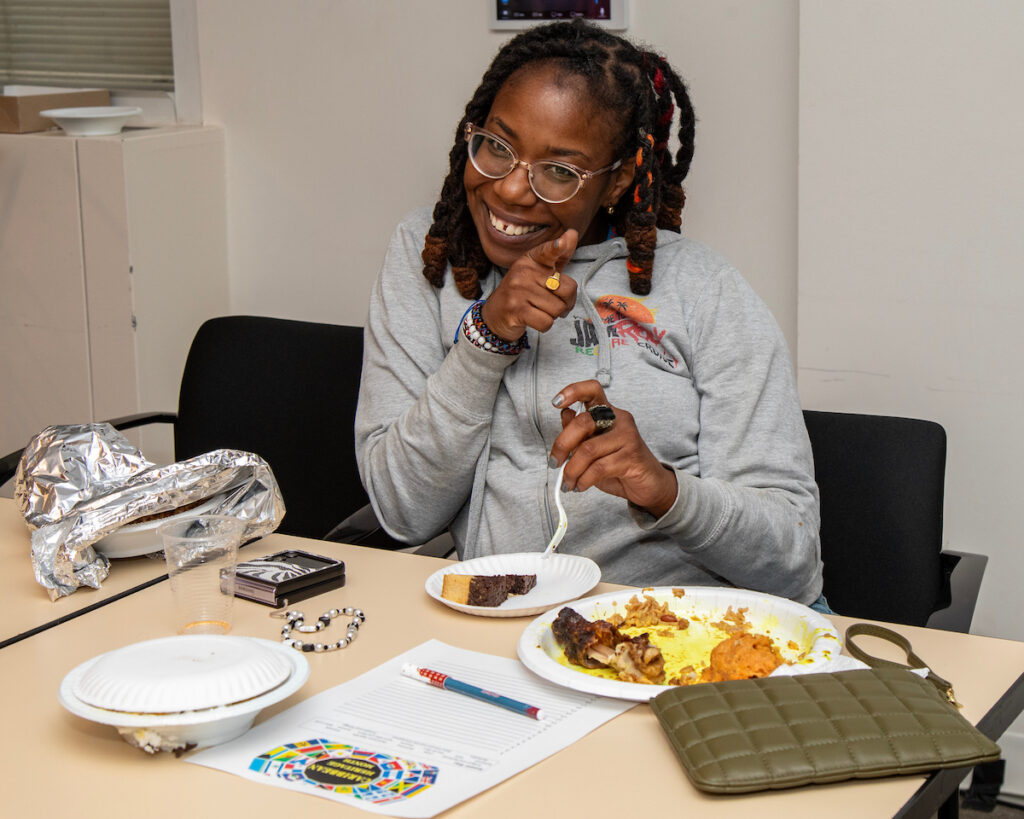
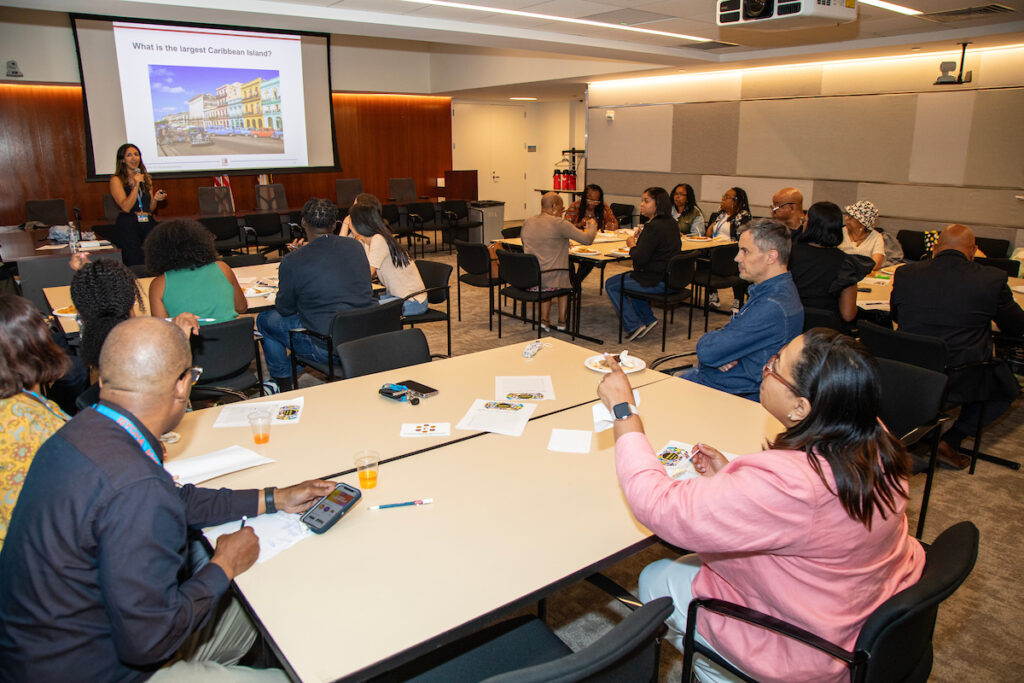
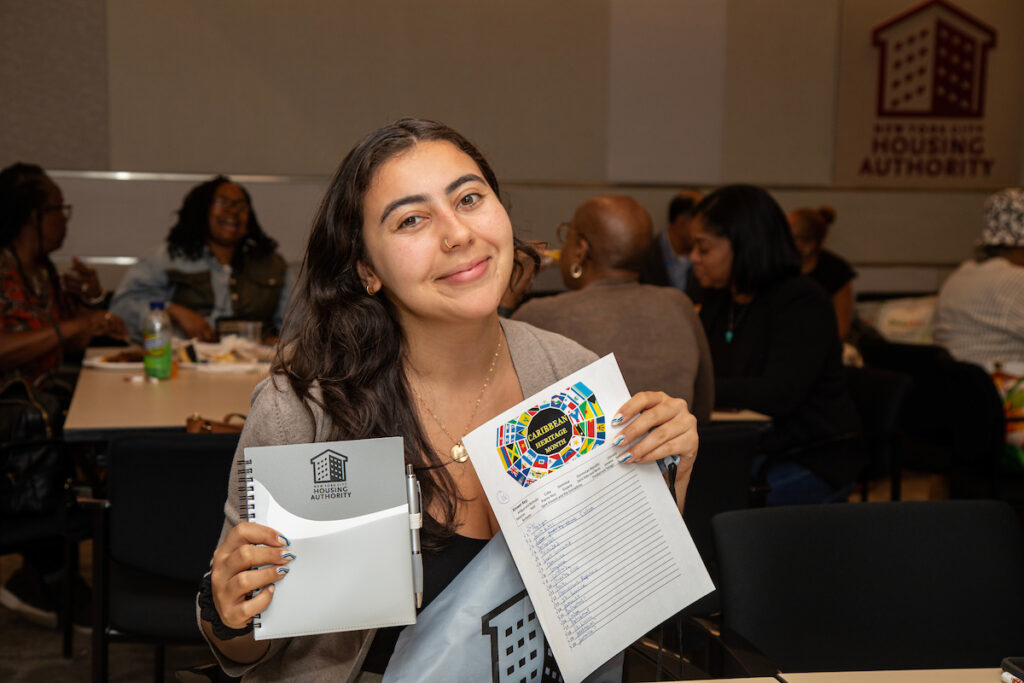
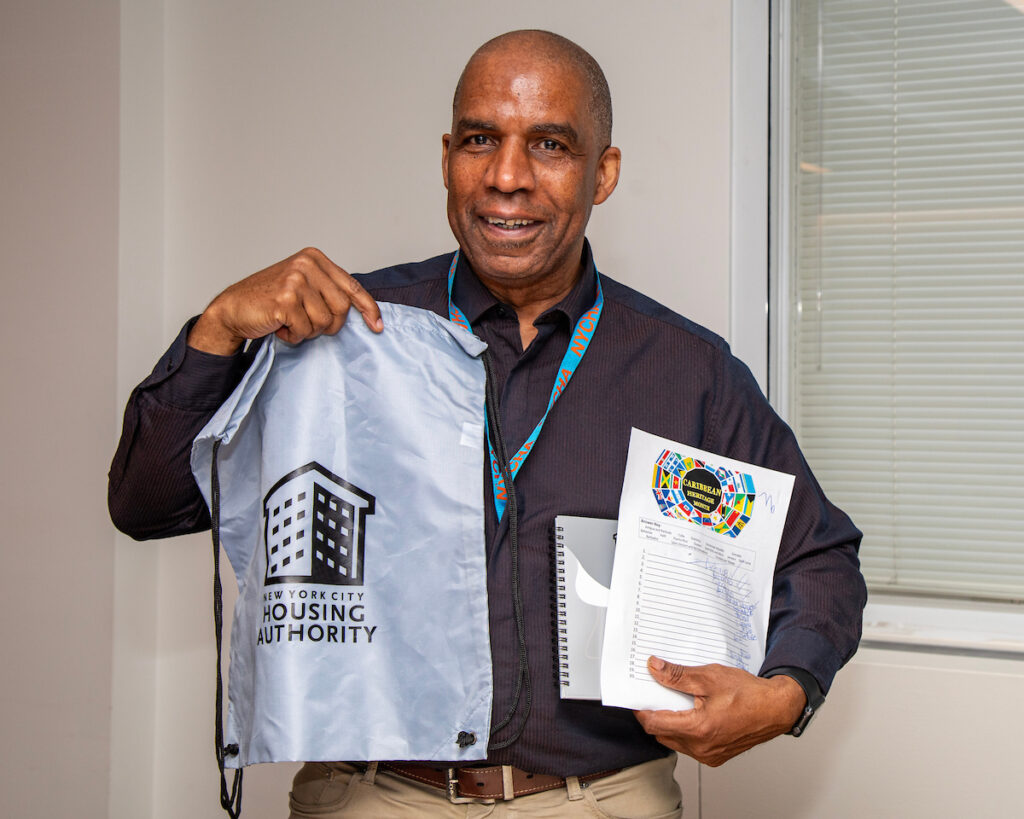
What is your Caribbean heritage?
Sharon: I was born here, and my parents are from Guyana.* I’ve been going there since I was a baby. I’m familiar with the country, customs, and I still have a lot of family living there.
*Guyana is the only South American country that is part of the Caribbean and the only country in South America where English is the national language.
Paula: I’m American, born and raised here, but my dad is from St. Croix* and my maternal grandfather is from Bermuda.
*The U.S. Virgin Islands comprise St. Croix, St. John, St. Thomas, and other smaller islands.
What is something you’d like people to know about your heritage?
Sharon: I think a lot of people don’t understand why the Caribbean is such a melting pot with many races, ethnicities, and religions. People are familiar with the American slave trade but not the Caribbean slave trade and how Caribbean culture is an extraction of so many things. For instance, in Guyana there are words that come from Africa, from India, and from when the British ruled us.
Paula: The U.S. Virgin Islands became part of the United States on March 31, 1917. I sometimes wonder if people see us as being Caribbean since we’re a U.S. territory. When we did our family tree, we found paperwork from when my great-grandmother came to the U.S. and went through Ellis Island. That was before St. Croix became part of the U.S.
What is your favorite Caribbean dish?
Sharon: There’s so much good food, including jerk chicken, doubles, and oxtail, but for me as a Guyanese person, pepperpot* is my favorite. There’s such a history there and it’s a staple in Guyanese culture. I remember pepperpot being the Christmas morning dish, and smelling it always makes me think of Christmas.
*Pepperpot is a Guyanese stewed meat dish flavored with a sauce made from cassava root, cinnamon, and more.
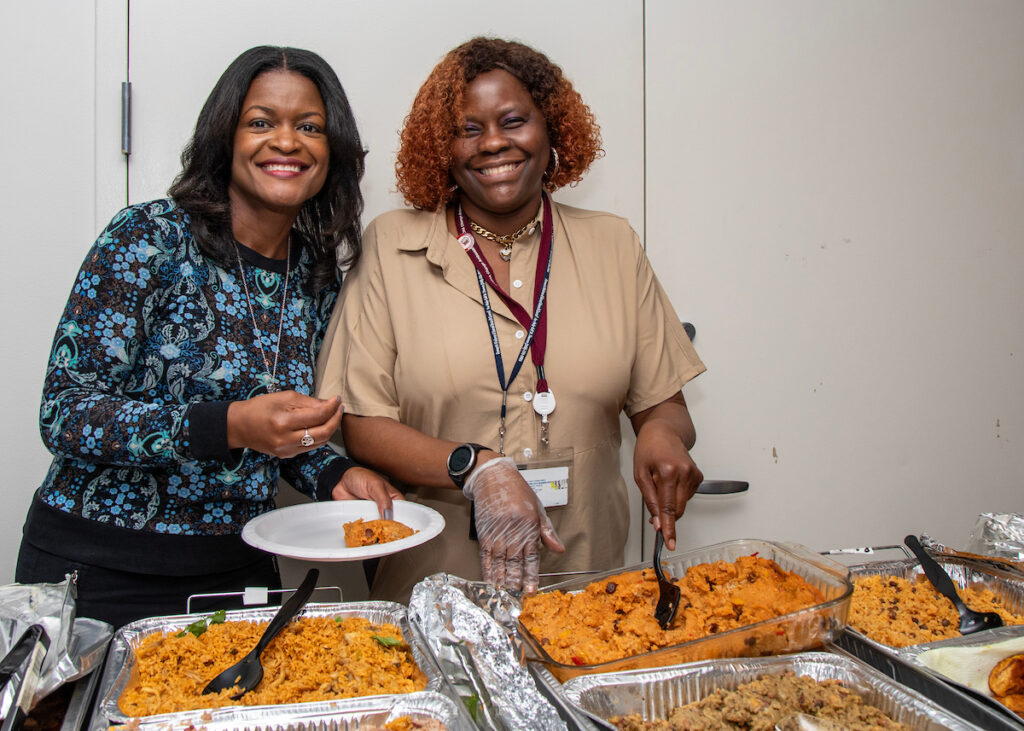
Paula: I remember watching my father make Cruzan potato stuffing. He also used to make codfish in red sauce with yucca, rice, and plantain. One of my favorite meals is also roti.
What are you most excited about regarding the new association?
Sharon: I’m most excited about getting members together, learning from other people, and [fostering] community. I’m also excited about [potentially] doing volunteer work.
Paula: I’m excited about learning about other cultures. Growing up, coming from a Caribbean background wasn’t really talked about. I’m a kid of the 70s, and kids were a bit cruel when it came to accepting other cultures. I think this is a really good time because we’re more open minded and accepting of other cultures. We’re a beautiful melting pot of people, and people are more proud of who they are and where they come from and able to share their backgrounds freely without being judged.
What else do you want employees to know about the association?
Paula: Come join us!
Sharon: We’re looking for members, and the association is open to any NYCHA employee who wants to learn about the Caribbean culture or has an appreciation of the culture.
If you’re interested in joining the Caribbean-American Association, please contact Sharon Dhanraj at Sharon.Dhanraj@nycha.nyc.gov or Paula Flynn at Paula.Flynn@nycha.nyc.gov.

